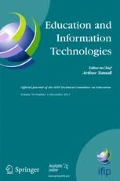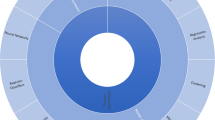Abstract
Web recommendation systems are ubiquitous in the world used to overcome the product overload on e-commerce websites. Among various filtering algorithms, Collaborative Filtering and Content Based Filtering are the best recommendation approaches. Being popular, these filtering approaches still suffer from various limitations such as Cold Start Problem, Sparsity and Scalability all of which lead to poor recommendations. In this paper, we propose a hybrid system-based book recommendation system that anticipates recommendations. The proposed system is a mixture of collaborative filtering and content based filtering which can be explained in three phases: In the first phase, it identifies the users who are analogous to the active user by matching users' profiles. In the second phase, it chooses the candidate's item for every similar user by obtaining vectors Vc and Vm corresponding to the user's profile and the item contents. After calculating the prediction value for each item using the Resnick prediction equation, items are suggested to the target user in the final phase. We compared our proposed system to current state-of-the-art recommendation models, such as collaborative filtering and content-based filtering. It is shown in the experimental section that the proposed hybrid filtering approach outperforms conventional collaborative filtering and content-based filtering.








Similar content being viewed by others
Data Availability
The datasets analyzed during the current study are available in the IIF’s repository, http://www2.informatik.uni-freiburg.de/~cziegler/BX/.
References
Adeniyi, D. A., Wei, Z., & Yongquanu, Y. (2016). Automated web usage data mining and recomme.ndation system using K-Nearest Neighbor (KNN) classification method. Applied Computing and Informatics, 12(1), 90–108. https://doi.org/10.1016/j.aci.2014.10.001.
Al-Hassan, M., Lu, H., & Lu, J. (2015). A semantic enhanced hybrid recommendation approach: a case study of e-Government tourism service recommendation system. Decision Support Systems, 72, 97–109. https://doi.org/10.1016/j.dss.2015.02.001.
Ali, Z., Khusro, S., & Ullah, I. (2016). A hybrid book recommender system based on table of contents (toc) and association rule mining. In Proceedings of the 10th International Conference on Informatics and Systems (pp. 68–74). ACM. https://doi.org/10.1145/2908446.2908481.
De Gemmis, M., Lops, P., Musto, C., Narducci, F., & Semeraro, G. (2015). Semantics-aware content-based recommender systems. In Recommender Systems Handbook (pp. 119–159). Springer. https://doi.org/10.1007/978-1-4899-7637-6_4.
Elkahky, A. M., Song, Y., & He, X. (2015). A multi-view deep learning approach for cross domain user modeling in recommendation systems. In Proceedings of the 24th International Conference on World Wide Web (pp. 278–288). International World Wide Web Conferences Steering Committee. https://doi.org/10.1145/2736277.2741667.
Ganguly, D., Roy, D., Mitra, M., & Jones, G. J. (2015). Word embedding based generalized language model for information retrieval. In Proceedings of the 38th international ACM SIGIR conference on research and development in information retrieval (pp. 795–798). ACM. https://doi.org/10.1145/2766462.2767780.
Isinkaye, F. O., Folajimi, Y. O., & Ojokoh, B. A. (2015). Recommendation systems: Principles, methods and evaluation. Egyptian Informatics Journal, 16(3), 261–273. https://doi.org/10.1016/j.eij.2015.06.005.
Li, S. S., & Karahanna, E. (2015). Online recommendation systems in a B2C E-commerce context: A review and future directions. Journal of the Association for Information Systems, 16(2), 72. https://doi.org/10.17705/1jais.00389.
Lieberman, H. (1995). Letizia: an agent that assists web browsing. IJCAI, 1(1995), 924–929.
Logesh, R., & Subramaniyaswamy, V. (2019). Exploring hybrid recommender systems for personalized travel applications. In Cognitive informatics and soft computing (pp. 535–544). Springer. https://doi.org/10.1007/978-981-13-0617-4_52.
Malik, Z. K., & Fyfe, C. (2012). Review of web personalization. Journal of Emerging Technologies in Web Intelligence, 4(3), 285–296. https://doi.org/10.4304/jetwi.4.3.285-296.
Mihalcea, R., Corley, C., & Strapparava, C. (2006). Corpus-based and knowledge-based measures of text semantic similarity. In Aaai (Vol. 6, No. 2006, pp. 775–780).
Miller, B. N., Ried, J. T., & Konstan, J. A. (2003). GroupLens for Usenet: Experiences in applying collaborative filtering to a social information system. From Usenet to CoWebs (pp. 206–231). Springer. https://doi.org/10.1007/978-1-4471-0057-7_10.
Moreno, M. N., Segrera, S., López, V. F., Muñoz, M. D., & Sánchez, Á. L. (2016). Web mining based framework for solving usual problems in recommender systems. A case study for movies׳ recommendation. Neurocomputing, 176, 72–80. https://doi.org/10.1016/j.neucom.2014.10.097.
Pazzani, M. J., & Billsus, D. (2007). Content-based recommendation systems. In The adaptive web (pp. 325–341). Springer. https://doi.org/10.1007/978-3-540-72079-9_10.
Polatidis, N., & Georgiadis, C. K. (2016). A multi-level collaborative filtering method that improves recommendations. Expert Systems with Applications, 48, 100–110. https://doi.org/10.1016/j.eswa.2015.11.023.
Rettinger, A., Lösch, U., Tresp, V., d’Amato, C., & Fanizzi, N. (2012). Mining the semantic web. Data Mining and Knowledge Discovery, 24(3), 613–662. https://doi.org/10.1007/s10618-012-0253-2.
Santra, A. K., & Jayasudha, S. (2012). Classification of web log data to identify interested users using Naïve Bayesian classification. International Journal of Computer Science Issues (IJCSI), 9(1), 381.
Schouten, K., Ruijgrok, P., Borsje, J., Frasincar, F., Levering, L., & Hogenboom, F. (2010). A semantic web-based approach for personalizing news. In Proceedings of the 2010 ACM Symposium on Applied Computing (pp. 854–861). ACM. https://doi.org/10.1145/1774088.1774264.
Shardanand, U., & Maes, P. (1995). Social information filtering: algorithms for automating" word of mouth". In Chi (Vol. 95, pp. 210–217). https://doi.org/10.1145/223904.223931.
Sharma, S., Mahajan, S., & Rana, V. (2019). A semantic framework for ecommerce search engine optimization. International Journal of Information Technology, 11(1), 31–36. https://doi.org/10.1007/s41870-018-0232-y.
Singh, V. K., & Singh, V. K. (2015). Vector space model: an information retrieval system. International Journal of Advance Engineering Research and Studies/IV/II/Jan.-March, 141, 143.
Smith, B., & Linden, G. (2017). Two decades of recommender systems at Amazon.com. IEEE Internet Computing, 21(3), 12–18.
Taghipour, N., & Kardan, A. (2008). A hybrid web recommender system based on q-learning. In Proceedings of the 2008 ACM symposium on Applied computing (pp. 1164–1168). ACM. https://doi.org/10.1145/1363686.1363954.
Thorat, P. B., Goudar, R. M., & Barve, S. (2015). Survey on collaborative filtering, content-based filtering and hybrid recommendation system. International Journal of Computer Applications, 110(4), 31–36. https://doi.org/10.5120/19308-0760.
Wu, F., Wang, H., Li, Z., Lee, W. C., & Huang, Z. (2015). SemMobi: a semantic annotation system for mobility data. In Proceedings of the 24th International Conference on World Wide Web (pp. 255–258). ACM. https://doi.org/10.1145/2740908.2742837.
Ziegler, C.-N., McNee, S. M., Konstan, J. A., and Lausen, G. (2005). Improving Recommendation Lists Through Topic Diversification”. Proceedings of 14th ACM International Conference on World Wide Web.
Author information
Authors and Affiliations
Corresponding author
Ethics declarations
Conflicts of interest
The authors do not have any conflicts of interest in relation to the present work.
Additional information
Publisher's Note
Springer Nature remains neutral with regard to jurisdictional claims in published maps and institutional affiliations.
Rights and permissions
About this article
Cite this article
Sharma, S., Rana, V. & Malhotra, M. Automatic recommendation system based on hybrid filtering algorithm. Educ Inf Technol 27, 1523–1538 (2022). https://doi.org/10.1007/s10639-021-10643-8
Received:
Accepted:
Published:
Issue Date:
DOI: https://doi.org/10.1007/s10639-021-10643-8




